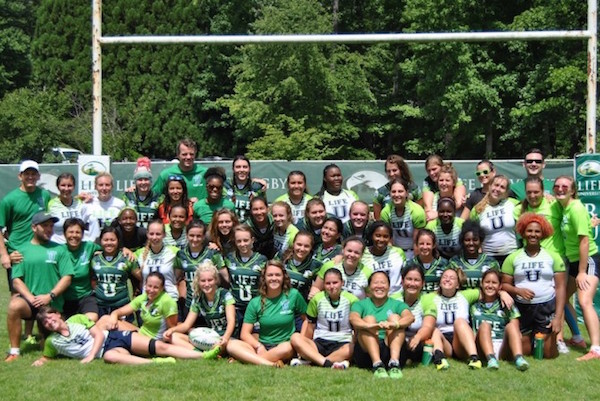I know we are in the middle of winter, but before you know it, summer will be upon us! With so many amazing rugby camps now being offered (with many selling out quickly!), it is becoming more important to look ahead and plan for your child’s summer rugby camp experiences.
I am often asked to help families identify the best rugby camps for their children and depending on their child’s needs, some camps will be recommended over others.
Here are some important things to bear in mind as you make decisions about which camp your child should attend this summer:
History of Camp and Background/Experience of Coaches & Staff –
Years ago, there used to only be a handful of camps offered in the summers. And while it is exciting to see more pop up all over the country, it can be difficult to decipher which camps are truly worth it for your child to attend.
It is important to look into the background of not only the camp (e.g. How long has it been around?) but also the background and experience level of the people responsible for your child.
If it’s a new camp, ask your child’s high school or club coach if she or he has any knowledge of this camp and its organizers.
If it is a residential sleep-away camp, how are staff assigned to watch over the campers?
Are the camp counselors/coaches background checked?
I highly recommend checking out the profile of each coach (e.g. What is their rugby teaching background? Do they have experience coaching in a camp setting? Are coaches USA Rugby Level 1, 2 or 3 certified?).
You might also inquire what other activities are included with the camp. For example, The Rugger’s Edge partners with various camps (such as the US Collegiate Development Camp) to provide academic advisement and added value for those campers and families. Some programs include off-site visits to games or other locations like the beach.
Benefits –
Are there unique benefits of attending this particular camp such as helping your child gain admission or recruitment support?
For example, many colleges and universities such as Life University, Cal Berkeley, Army West Point, or Bowdoin College HIGHLY ENCOURAGE prospects to attend their summer camp to be considered for a recruitment slot, whereas Atavus Resident Camps offer players a chance to be seen by USA Rugby National Team coaches and selectors.
Some camps also offer opportunities to have athletic stats measured (Yo-Yo Test, Vertical Jump etc.) as well as have games filmed which can be helpful for prospective recruits.
International camps such as Inside Running Academy offer campers the additional experience of training for a longer period of time and have benefits of cultural excursions as well.
Focus –
Is there a special focus at this camp? Some camps are more focused on individual development with a focus on technical and tactical skills while others may prioritize overall development in 15s vs 7s.
Others can also target specific positions (e.g. a scrumhalf only camp, or a Tight 5 camp).
Will there be live play (controlled scrimmages?) or drill-based? Consider which skills your child is hoping to develop and choose accordingly.
Age Group –
Ask about the age group of the majority of campers attending the camp. A camp might be open to a broad age range but gains such a following with high school and college players that the intensity level might be too intense for a U14 player.
Other camps skew younger and might not be challenging enough for older players. If there is a mix of ages, you should ask how these groups interact in drills (e.g. are they separated by weight/ age/ ability or all of the above?)
Additional Summer Activities –
What other activities might your child want or need to engage in over the summer?
Cross-reference these dates with rugby camp dates to see which ones he or she can participate in. For example, I highly recommend many of my students take some sort of academic enrichment over the summer such as a Pre-College Course at a local university or re-take a high school course over the summer if needed.
Academic needs will always trump athletic ones in my book!
Cost –
Finally, take a look at the cost. Many camps have day camp options as well as residential overnight options.
Others may charge additional fees for early drop-off or late pick up. Make sure you know the total cost you are purchasing.
Don’t forget to factor in additional costs such as flights, car rental, hotel etc. if you are traveling far from home.
Depending on your child’s needs and goals, it might make more sense develop your skills at a local camp close to home before committing to a camp on the other side of the country.
Last, make sure you inquire about scholarship opportunities if you are unable to afford to send your child to camp. Many camp administrators set aside some pro-bono slots for local players.
Need more help matching your child to a rugby camp this summer?
See SportStars List of Rugby Camps and
Rugger’s Edge Rugby Camp List for outside of the area
Photo Credit: Life University Women’s Rugby
[bsa_pro_ad_space id=24]

